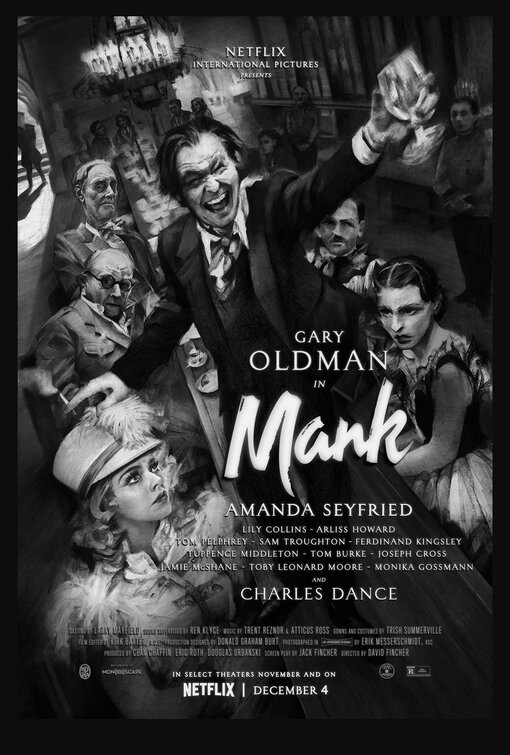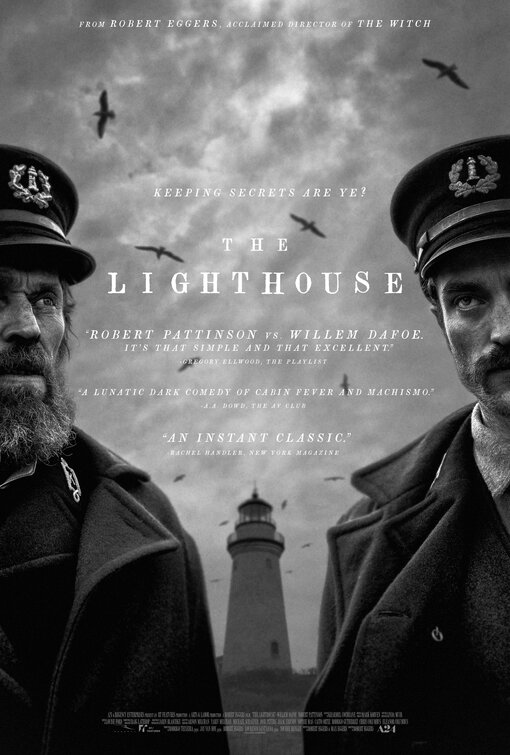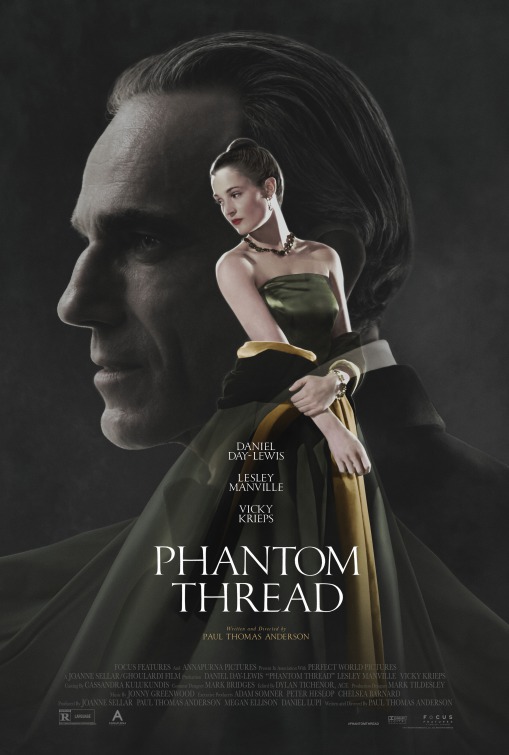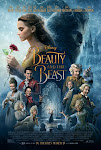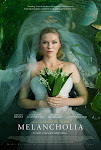Coastal View News
What’s the difference between Britney and Bach? Or between
fine wine and some sugary drink whose smallest size is “bucket”?
I don’t really know. But whatever the difference is, it
can’t just be that one is enjoyable—or even good—while the other isn’t.
Pleasure comes in many forms. And yet connoisseurs of music and wine and movies
will insist, and rightly so, that there’s a difference.
“Phantom Thread” is Bach. It’s fine wine. Paul Thomas
Anderson, Daniel Day-Lewis and Vicky Krieps are its vintners. And there is a difference.
“Phantom Thread” is about the dominion of dressmaker
Reynolds Woodcock (Daniel Day-Lewis). Reynolds’ work is inspired, as if from on
high. His dresses make the women who wear them feel just right—that they belong,
whether at a party or a ball or a state dinner, but most of all, his dresses make
them feel like they belong at all, to
the world. As if by magic, or sublime revelation, Reynolds makes them fit.
And those around him, intoxicated by his passion for his
art, bow in adoration. Reynolds Woodcock is not, in fact, a god. But you wouldn’t
know it by observing his little Olympus perched along a fashionable street in
London.
Take Cyril (Lesley Manville), for example. Cyril, who
Reynolds tenderly refers to as “my old so-and-so” and thus indicates his
affection for this quasi-wifely companion who apparently lacks a title but who nevertheless
makes her pious sacrifice by dutifully managing his creative temple, sits with
veteran aplomb across a breakfast table from a much younger, prettier woman who
appears to be in a long-term daze over why she is there.
But Cyril knows. Reynolds sits at the end of the table,
head down in his drawings, unconcerned. But Cyril knows the younger woman is a set
piece—a shiny object that once occupied Reynolds’ attention but that has now lost
its luster. With Reynolds’ permission, Cyril gets rid of her.
Reynolds quickly finds another would-be set piece. Alma
(Vicky Krieps) is a somewhat plain, even clumsy, waitress, who Reynolds draws
in and draws forth with shockingly smooth rapidity, as if with a single stroke—two
hems united with one needle delicately thrust into the garment. Alma is
perfect, Reynolds says. Alma is everything, he coos. She brings him to life.
She makes him voracious.
But Alma is not a set piece. She won’t allow it. She understands,
appreciates, and even adores Reynolds’ dominion, as did those who came before
her. But now it’s hers. She, unlike others
who were all too willing to worship at the altar of Woodcock, is no mere mortal.
And she can, if she must, make Reynolds mortal too.
Reynolds Woodcock isn’t a god. He actually has two parts—two
roles to play. Like so many other natural-born idols, he is part deity, part
helpless child. He thrives—he almost literally feeds—on two distinct, seemingly
incommensurate nutrients: Adoration and succor. He comes alive when he, and
especially his work, is deified and held scared. But he equally longs for someone
to take care for him, to mother him, to cradle him, to make him feel small and
innocent. Alma learns this. And she learns to use it to her advantage.
These characters in “Phantom Thread” are at once strange
and otherworldly, yet also profoundly recognizable. They are mosaics composed
of the usual shards of humanity, but arranged in ways that highlight these
ingredients in a new, fascinating, and somewhat alien way.
It’s its own kind of mythology. The characters—the ungodly
gods, the mortals grasping for infinitude, the Promethean overreachers, the
tricksters, the plotters, the egomaniacs, the jealous devotees—animated as they
are by some mystical force, and joined by all of the tangled, twisted ligaments
that bind people together and keep them apart, represent the basic elements of what
humans are, what they could be, and what, for good or ill, they aspire to.
Anderson’s films always invite continued reflection,
interpretation, wonder, and even puzzlement. “Phantom Thread” is no exception.
It is subtle, painstakingly crafted, bold and yet complex; it defies
description and yet invites—even insists upon—comparison, analysis, and
discussion. “Phantom Thread” is fine wine.
There are a lot of good movies this year. Pleasure does
indeed come in many forms. But if I had just one pick from the 2017-2018
vintage, it’d have to be “Phantom Thread”.




